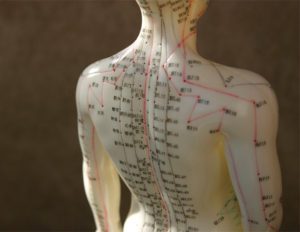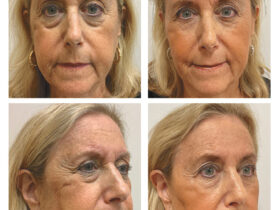By Toni Eatros, MS, Dipl Ac, AP
 Should I get acupuncture if I’m not sick? This is a question people often ask. For more than 2,500 years practitioners of acupuncture & traditional Chinese medicine (TCM) have emphasized the importance of preventative medicine rather than waiting until disease begins. Yang-sheng is the preventative branch of TCM, yang-sheng means to ‘nourish life’. The tradition of drinking bone broth to nourish well-being comes from the yang-sheng branch of TCM.
Should I get acupuncture if I’m not sick? This is a question people often ask. For more than 2,500 years practitioners of acupuncture & traditional Chinese medicine (TCM) have emphasized the importance of preventative medicine rather than waiting until disease begins. Yang-sheng is the preventative branch of TCM, yang-sheng means to ‘nourish life’. The tradition of drinking bone broth to nourish well-being comes from the yang-sheng branch of TCM.
Another key concept from the yang-sheng tradition of acupuncture & TCM is that emotional balance is the key to wellness and longevity. According to TCM, there are external and internal factors that bring health out of balance. The external factors include environmental factors (weather, pollution, viruses, etc) while the internal factors are our emotions. The key to maintaining health is keeping our emotions in balance and not get stuck in any emotion.
Western allopathic medicine usually doesn’t recognize the role of emotions in creating illness beyond acknowledging stress exacerbates or causes 80 percent of all illnesses. According to TCM theory, specific emotions are linked to specific parts of the body: being stuck in an emotion can bring that part of the body out of balance. Acupuncture & TCM can help us stay healthy by balancing our emotions.
TCM theory identifies specific emotions that bring us out of harmony in specific ways. How did this theory develop? TCM practitioners have kept meticulous records for 2,500 years; there is a long tradition of scholarly observation and analysis of case studies.
Through this long history patterns of health and disease were identified; these patterns held consistently true and thus became an integral part of TCM theory.
In one of the oldest books on TCM, “The Inner Classics of the Yellow Emperor,”compiled around 100 B.C.E., said excess joy slows and scatters qi, excess anger causes qi to ascend, excess sadness and grief weakens qi, excess worry knots and binds qi, fear descends qi and fright induces chaotic qi. The good news is each excessive emotion can be ‘harnessed,’ transformed and channeled into a virtuous emotion, which restores harmony and well-being. This transformation of emotions from excess to virtue is a vital aspect of yang-sheng branch of acupuncture and TCM.
Among the most common of excess emotion is the tendency of overthinking, worry and rumination; this will tend to result in digestive issues and/or fluid metabolism concerns, as well as muscular tension and pain. To transform overthinking and worry into the virtue of creativity and dynamic insight, develop a regular meditation practice, even five to 10 minutes once a day can make a difference! You will develop the discipline to redirect worry and over-thinking into dwelling in the present moment more often. A quote from “The Dhammapada” (The Buddha’s Path of Wisdom) expresses this, “As the bee collects nectar and departs without injuring the flower, or its color or scent, so let a sage dwell in his village.” Notice when you worry or overthink about something, think of your thoughts like a bee. Allow yourself to collect the ‘pollen’ of your thought while also germinating future ideas and transform your thoughts into honey. A bee does not cling to only one flower.
There are specific acupuncture points on the stomach and spleen meridians that can transform worry into creative action.
These points can energize your motivation to accomplish your dreams while improving your energy, digestion and boosting the immune system!
If you find you feel stuck in one particular emotion, such as worry or irritability and anger, acupuncture can be very helpful in moving you through those stuck emotions. The change of season is always a great time to get acupuncture from a preventative health perspective. Each season, two meridians are more predominant. If you have an imbalance in these meridians, the symptoms tend to show up during the corresponding season. A great optimal health strategy is to schedule acupuncture the week or two before the change of the season. For more information about acupuncture, visit our website, https://AcupunctureSolutionsOnline.com.









